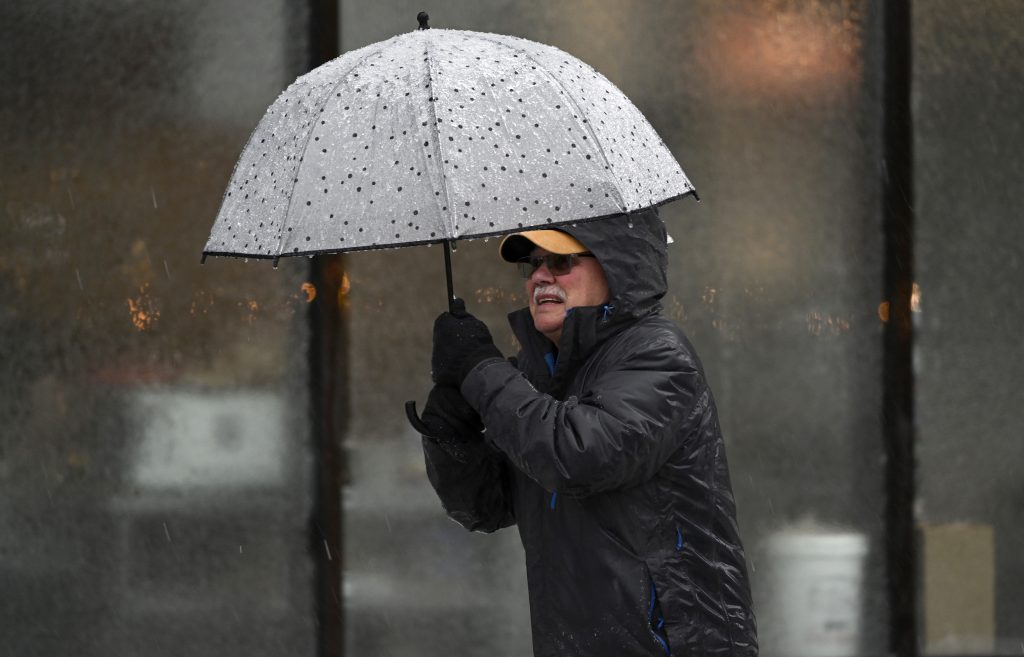Toronto city council holds first meeting of term amid questions over ‘strong mayor’ powers

Posted November 23, 2022 12:08 pm.
Last Updated November 23, 2022 6:24 pm.
Despite a call for unity by Mayor John Tory during the first meeting of the 2022-2026 term of Toronto city council, new and proposed powers by the Ford government are raising concerns at city hall.
“Without revealing this to the public during the election or any consultation with your colleagues who were also duly elected by the people of Toronto, you impugned the privilege of this assembly… by requesting that Premier Ford provide you undemocratic, minority-rule powers that are unprecedented in any democratically elected body anywhere in the world,” Coun. Josh Matlow said while citing a point of privilege just as Tory was about to be presented with the chain of office.
Matlow went on to request a full debate at the “first possible” council meeting to discuss the matter and to rescind a request for additional powers that would be granted under Bill 39.
“There will be a report forthcoming to the city council at its meeting in December at which time because some of the matters that you made reference to are not even passed into law as of yet — they are still in front of the legislature — and that matter will be discussed at that time,” Tory said in response.

Later in the meeting, he addressed the concerns raised by Matlow in the council chamber and by others outside of it during his inaugural address.
“I am committing here today first I will only utilize this measure on housing and transit matters of city-wide importance,” Tory said.
“Second, that any proposed use would always be precededed by a staff report independently written by our staff. And thirdly, that I will without exception, without exception try first to forge a consensus through the use of the council process.”
Questions will be raised at Toronto city council over the coming weeks about Bill 39, dubbed the Better Municipal Governance Act.
Ontario Municipal Affairs and Housing Minister Steve Clark announced on Nov. 16 further changes as a result of the bill. The mayors of Toronto and Ottawa could “propose certain municipal by-laws related to provincial priorities and enable the council to pass these by-laws,” with just one-third plus one of the council voting in favour.
Under the new legislation, Ontario’s municipal affairs minister would be able to dictate what qualifies as provincial priorities. Clark was asked about that new ability to determine what should fall under this new authority.
“Our decision as a government was to provide provincial priorities in a renewed system,” he said at the time.
It was later learned Tory asked for the additional powers. However, he said he didn’t “expect to be using these new authorities very frequently,” adding he earned a strong mandate in the Toronto election.
RELATED: Ontario government to review regional governments while expanding ‘strong mayor’ powers
Earlier in the year, new “strong mayor” powers were conveyed by the Ford government. Effective Wednesday, Tory was given the ability to appoint Toronto’s city manager, hire certain department heads, establish and reorganized departments, create council committees and appoint the chairs and vice-chairs of those committees, and propose a municipal budget (which comes with council amendment as well as head of council veto and council override processes).
A statement issued by the Toronto city clerk’s office on Wednesday said the use of these particular powers must come in writing. Staff said a list of times those powers are invoked will be posted on the City’s website.
In Tory’s address, he also made the pitch for working together amid a push for more funding from the upper levels of government.
“Get more things done together. That is probably more fundamental to building confidence in the system,” Tory said, emphasizing he won’t be seeking a fourth term on council and as a result his focus is different.
“I am here to get as much done as possible now and you’ll be see my motives are pure.”
Tory said building new housing, ensuring the Ford government’s subway expansion plan continues to get built, advancing work on the proposed waterfront and Eglinton East LRT lines and community safety are on his list of priorities over the next four years.
He also said there must be a focus on improving “nuts and bolts” services.
“We can do better, we will do better and we must do better,” Tory said.
During the address, he referenced the 2023 budget. Tory said COVID-19, outdated financing of city services and “threats posed” by Bill 23 are putting a significant burden on the municipality to maintain services.
RELATED: Ontario government to review regional governments while expanding ‘strong mayor’ powers
“This isn’t something we can tax our way out of and it isn’t something we can or should cut,” Tory said referencing the impacts of COVID-19 on the budget.
Bill 23, dubbed the More Homes Built Faster Act, would change laws related to housing. Concerns have repeatedly been raised about how the proposed reduction in development charges would impact municipal budgets.
As the provincial government looks for 1.5 million new homes to be built over the next 10 years, the bill is intended to spur and speed up development. Ontario government officials said Toronto needs 285,000 new homes.
The legislation would allow up to three residential units — such as basement apartments and garden houses — on one lot without needing bylaw amendments. Those new units would also be exempt from development charges.
The province also proposes to freeze, reduce and exempt fees associated with new home construction in order to spur building. Affordable housing, non-profit housing and inclusionary zoning units — meaning affordable housing in new developments — as well as some “attainable” units would be exempt from various charges. Rental builders would also see development charges reduced, with larger discounts on family-sized units.
First Toronto council meeting full of ceremony, procedural matters
The meeting was the first one for Councillors Amber Morley, Alejandra Bravo, Ausma Malik, Dianne Saxe, Chris Moise, Lily Cheng and Jamaal Myers as they join the 26-member body while Councillors Vincent Crisanti and Jon Burnside return to city hall following their previous stints as councillors. All were elected to office on Oct. 24.
The council began the day with an Indigenous welcoming ceremony at Nathan Phillips Square, the first time City officials said an Indigenous-led ceremony marked a new term of office.
Saxe told CityNews before the meeting she is celebrating the day with those closest to her, including her eight-year-old grandson who turned eight on Wednesday.
“It’s a chance to share with friends and family, who have worked very hard to work here and will pay a huge price for the next four years,” she said, noting her schedule will likely take a lot of personal time.
RELATED: Advocates celebrate increase in diverse representatives on Toronto city council
Cheng said she wants to take the day to get to know her new council colleagues.
“We haven’t actually all sat down together since this morning,” she told CityNews.
The first day of the meeting was ceremonial as council members recited their declarations of office while individually posing for pictures with Tory.
Councillors Frances Nunziata and Stephen Holyday were elected by council members as speaker and deputy speaker, respectively.
On Thursday, council will meet again and councillors will be appointed to boards and committees. There will also be further discussion on Bill 23 and other matters deemed urgent.
With files from Mark McAllister and The Canadian Press









